Hoi An has long been famous for its former role of trading exchanges of traders around the world. Undergoing many years settling here, the Chinese have built the great number of valuable architectural works as houses, clan ancestral houses, shrines or assembly halls... Among them, the assembly hall is considered the most typical building in both architecture and its utility. Assembly Hall was built for the primary purpose as home to the activities of compatriots and also the place of worshiping patron gods and the ancestors of assembly hall each. One of the most beautiful assembly halls in Hoi An is Cantonese Assembly Hall, an impressive tourist attraction to tourists in Hoi An travel.
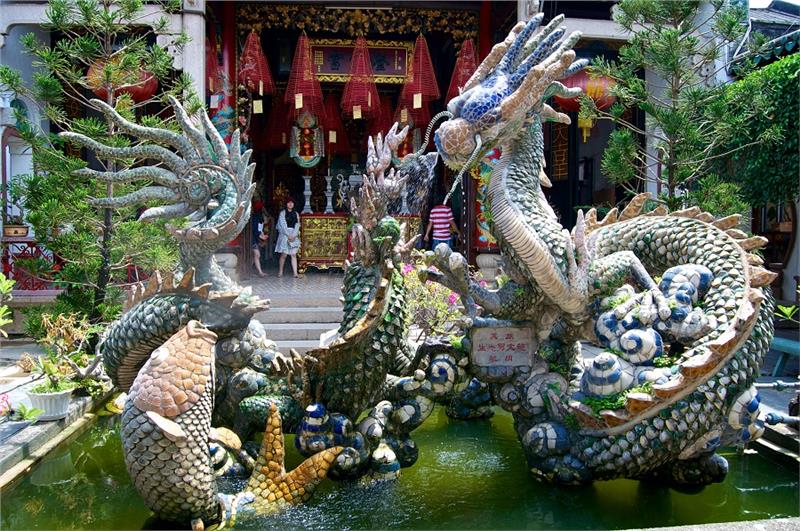
Quang Dong Assembly Hall is also known as Quang Trieu Assembly Hall or Assembly Hall of the Cantonese Chinese Congregation. The assembly hall was constructed in 1885 by the Chinese overseas of Guangdong. Located at No.176 Tran Phu street, Hoi An town, it is both an assembly hall and the famous tourist attraction in Hoi An alluring domestic and international tourists. The assembly hall is situated on the special "heritage road" of Hoi An Old Town, which is the largest concentration of popular unique architectural works in this town. Cantonese Assembly Hall is thus an indispensable tourist spot in any Hoi An tours to the ancient town.
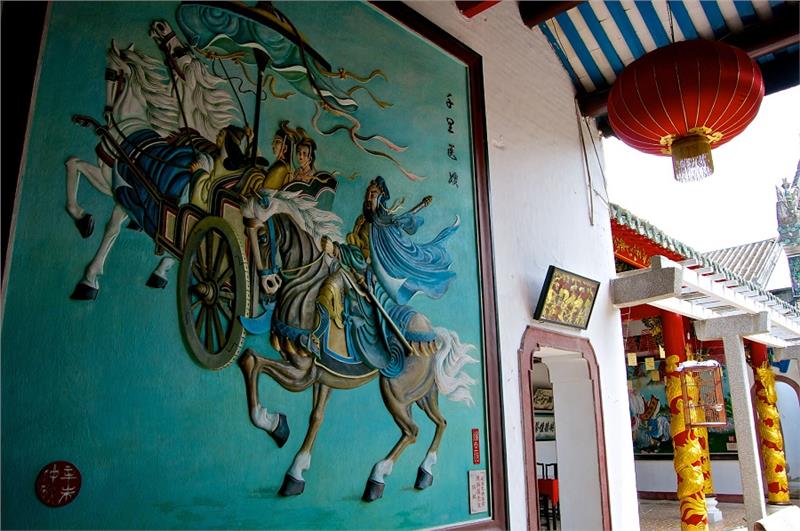
Like Fukian Assembly Hall, Trieu Chau (Chaozhou) Assembly Hall, Cantonese Assembly Hall Hoi An is a gathering place for community events and religious worship of Guangdong Chinese overseas living and working in Hoi An commercial trading port. This is the spiritual rendezvous of Cantonese expatriates to share and preserve cultural characteristics of their own nation. Not only does it play the role as the place of worshiping and preserving distinctive cultural identities, Assembly Hall of the Cantonese Chinese Congregation is now also a tourist attraction in Hoi An Old Town. This tourist spot retains a strong appealing to tourists who would like to explore the culture and unique architecture of the Chinese in Guangzhou in general and Hoi An Ancient Town in particular.
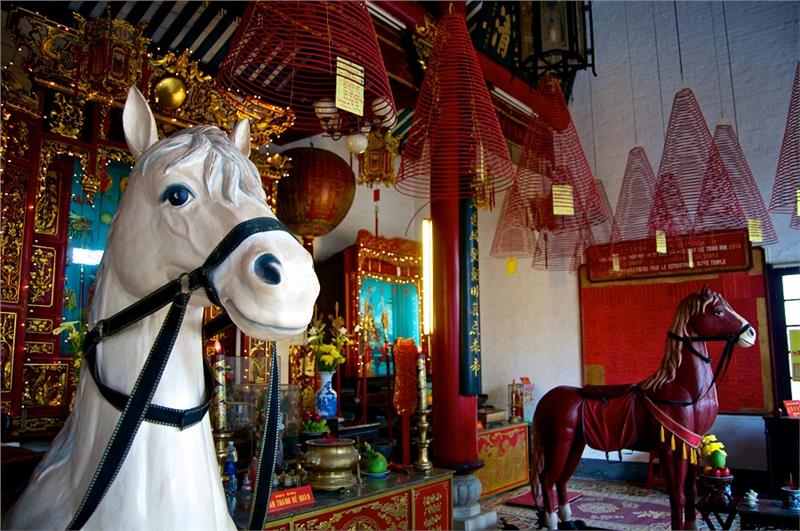
With its convenient location which is adjacent Japanese Covered Bridge, the famous bridge in Hoi An, Quang Dong Assembly Hall captivates the large number of tourists to visit in their Hoi An tour to the peaceful town. Quang Trieu Assembly Hall worships Goddess Thien Hau and Confucius at the beginning time. It then has moved into worshiping Guan Gong and the ancestors of Cantonese Assembly Hall. Thanks to its unique architecture in combination of the Guangdong region and local traditions, ancient artisans painstakingly constructed and decorated in order to create Quang Trieu Assembly Hall (Cantonese Assembly Hall as today) with its own exquisite beauty.
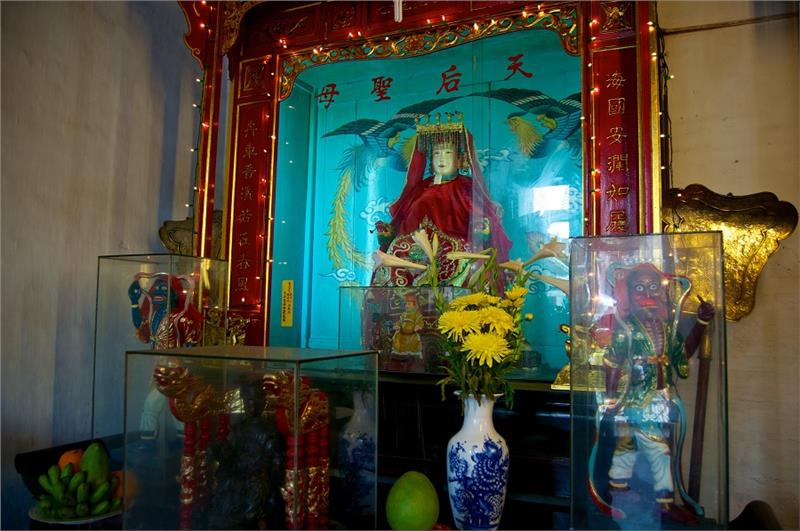
The assembly hall is located on the closed "Nation"- shaped campus, including the three-entrance gate, large front yard with bonsai, the east and west rows of houses, courtyards, main hall and chancel. The harmonious architecture of wood and stone in the bearing structure and decorative motifs offers the assembly hall the amazingly imposing particular beauty. Cantonese Assembly Hall currently preserves many valuable ancient artifacts including 4 large horizontal lacquered boards, a large bronze censer 1.6m high and 0.6m wide a long with a pair of Chinese celadon porcelain pedestal... In particular, the assembly hall organizes the lavish festival with numerous special activities on January 15/01 and 24/06 in lunar calendar annually attracting the participation of both the locals and tourists.
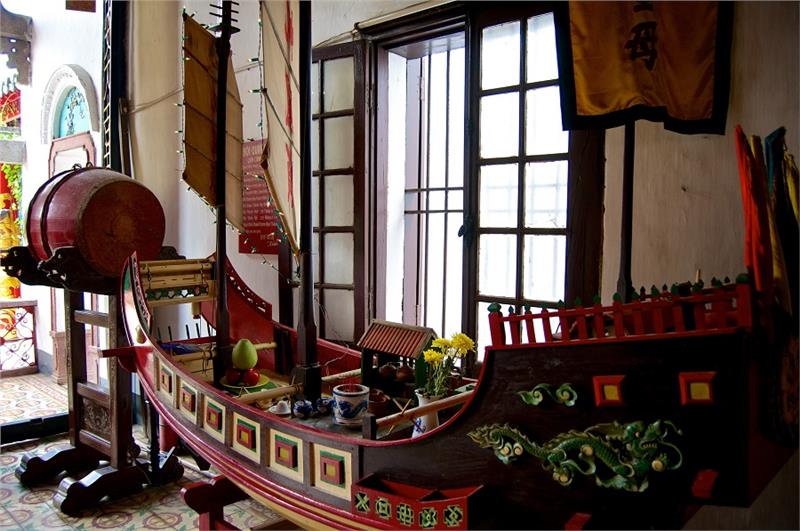
As a rendezvous strongly inspiring Chinese culture in the heart of Hoi An, Cantonese Assembly Hall is worth one of impressive Hoi An attractions for those who prefer to ascertain about the age-old culture. Not only discovering the unique magnificent architectural features of whole buildings, tourists also have the opportunity to get much more knowledge about the culture and customs of Guangdong people right at Hoi An. Thanks to its architecture and cultural significance, Cantonese Assembly Hall thus takes a significant role in promoting Hoi An tourism to both domestic and international tourists.
